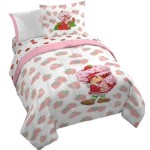What Are Bedding Plants?
Bedding plants are the splash of color that adorns gardens, patios, and balconies during the warmer months. They are typically grown in pots or containers and are used to create vibrant displays of blooms. Unlike perennials, bedding plants complete their life cycle within one growing season, making them ideal for seasonal pops of color. Join us as we delve into the fascinating world of bedding plants, exploring their characteristics, uses, and essential care tips.
Characteristics of Bedding Plants
Bedding plants are characterized by their compact growth habit, making them perfect for confined spaces. They typically have brightly colored flowers that bloom profusely over a long period. Some popular bedding plants include petunias, marigolds, impatiens, and geraniums. These plants are bred for their ornamental value and are often used to create eye-catching arrangements.
Uses of Bedding Plants
Bedding plants are versatile additions to any garden or outdoor space. They can be used in various creative ways to enhance the ambiance of your surroundings:
- Flower beds: Bedding plants are a staple in flower beds, adding vibrant hues and attracting pollinators.
- Containers: They thrive in pots and containers, brightening patios, balconies, and entranceways.
- Hanging baskets: Trailing varieties of bedding plants, such as petunias and lobelia, create cascading displays in hanging baskets.
- Edgings: Low-growing bedding plants, like alyssum and lobelia, can be used to define pathways and create attractive borders.
Care of Bedding Plants
To ensure the optimal growth and beauty of your bedding plants, follow these essential care tips:
- Sunlight: Most bedding plants prefer full sun to partial shade. Choose a location that receives at least 6 hours of sunlight daily.
- Soil: Prepare well-drained soil rich in organic matter. Amend the soil with compost or peat moss to improve fertility.
- Watering: Bedding plants have moderate water requirements. Water regularly, especially during hot and dry spells, but avoid overwatering.
- Fertilizing: Fertilize bedding plants every few weeks with a balanced liquid fertilizer to promote healthy growth and flowering.
- Deadheading: Remove spent flowers regularly to encourage continuous blooming and prevent seed production.
Conclusion
Bedding plants are a delightful addition to any garden or outdoor space, bringing a burst of color and beauty during the growing season. By understanding their characteristics, uses, and care requirements, you can create stunning floral displays that will enhance your surroundings and bring joy to your life. So next time you're looking to add a touch of vibrancy to your garden, consider incorporating bedding plants into your design.

Bedding Horticulture Wikipedia

28 Bedding Plant Varieties For A Stunning Garden

Bedding Plants For Shade Sun Portland Nursery

What Bedding Plants Are Best For Containers Richard Jackson Garden

How To Plant Bedding Plants Guides

Bedding Plant Definition In American English Collins Dictionary

12 Best Summer Bedding Plants Gardening Guide

Top 10 Summer Bedding Plants Thompson Morgan

Bedding Plants Dobies

How To Buy Bedding Plants Bioadvanced








